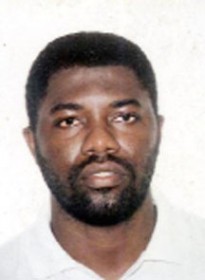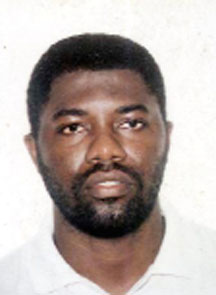The Ministry of Health is moving to address homophobia in the public health sector by focusing on training and the promotion of a manual designed to eliminate existing barriers to care offered to the Gay, Lesbian, Bisexual and Transgendered (GLBT) communities.

The Youth Friendly Services under the Ministry of Health’s Adolescent Health and Wellness Unit is hosting a four-day workshop, which opened on Monday, to train healthcare providers to deliver optimal care to groups which had previously raised issues of discrimination within the system, while pointing to how this impedes critical access to care.
Consultant Dereck Springer, who is facilitating the training session, underscored the importance of a new level of awareness within the health sector, saying yesterday that studies have repeatedly shown many healthcare workers are insensitive to the needs of certain groups largely considered sexual minorities. Specifically, he referred to the PAHO commission Terborg study, which found a few years ago that while Men who have Sex with Men (MSM) have access to STI and HIV-related services, such as knowledge, condoms, early treatment of STIs, and HIV testing, there were many who complained about the quality of the services, particularly public health services.
He said MSM living with HIV have stressed the double burden of stigma and discrimination; firstly, they suffer stigma and discrimination based on their sexual lifestyles; and secondly, because they are HIV positive. Springer said the Ministry of Health recognised the need to sensitise healthcare providers, while adding that groundwork on the manual had commenced some two years ago and included direct engagements with groups such as Society Against Sexual Orientation Discrimination (SASOD) and the Guyana Rainbow As-sociation (Guybow).
According to Springer, Health Minister Dr Leslie Ramsammy has repeatedly stressed the mandate in the health sector as being universal care in a non-discriminatory manner.
However, he said it was also recognised that the healthcare providers are people with their own prejudices. “… Therefore what this workshop will help people to examine is their own values and critically [to] respect the values others hold dear to them,” he added.
Springer said too that the manual was field tested last year among health care providers in Georgetown and Regions 4, 6, 7 and 8. He said the intention is to train an initial batch of healthcare providers who are expected to train others in the system in their respective regions, in addition to the manual being rolled out countrywide. The manual, which Springer wrote, was officially launched at the opening of the workshop on Monday.
Joel Simpson, Co-President of SASOD, said yesterday that the problems facing members of the GLBT communities are real and still need to be addressed. He spoke of the treatment still meted out to members on “a daily basis” and stressed the time has come for the Ministry among other stakeholders to directly address the issue.
He noted SASOD had partnered with the Ministry during the process, which commenced some two years ago. He added that critical contributions were made to inform the manual and consequent training sessions which are being conducted.
Simpson hailed the training and the manual as a welcomed initiative, but he said policy changes are also needed to buttress the current efforts. He said attitudes do need to change, but questioned how sustained the efforts could be without the necessary policies implemented to guide the delivery of care. He pointed out that training is also essential among the ancillary staff in the health system because “they are also part of the problem and the solution.” He added that a mechanism should be in place that allows members of the community to report incidents and gather timely feedback.
Prior to the release of the manual, SASOD had argued that once services become and are known to be client-friendly, there will be less need to invest in “targeting MSM” as GLBT communities in Guyana would gain confidence that the public health system does not house homophobic prejudices and allow discriminatory practices.
The workshop is expected to explore a number of issues, including values and diversity and the complexity of sexual orientation, in addition to communication skills for optimal health care.
The sessions include guidelines for dealing with male rape or sexual assault among other things and are also focused on the health care concerns of the GLBT communities in the country. Generally, the aim is creating a more conducive environment for members of the communities.

